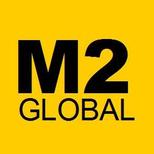 Author: Patrick McFadden, M2 Global
Author: Patrick McFadden, M2 Global
Covestor model: M2 Global
Beware of a Facebook (FB) top! Ahead of the social network’s initial public offering on May 18, there were competing news reports about the level of investor interest and outlook for Facebook. It is refreshing that we can see exactly where people stand on Covestor.com.
Facebook’s IPO price was set at $38 per share on May 17 giving it a market value of about $104 billion or in the range of eight times-plus net book value per share post offering. The most recent updates to the S1 also indicated that net operating margins and profit margins may be under pressure. (In the first few days after the social network site’s offering, Facebook’s stock has performed poorly.)
Surely this makes sense as Facebook’s management has hired aggressively and expanded infrastructure to accommodate growth. The issue: The company may be starting to run into the law of large numbers and simply may not be able to continue to grow at the previous pace. Remember, they are banned in China.
Operating leverage will be key for the future price of this stock, but with large number of Facebook users moving primarily to mobile platforms, it will be more difficult for the company to monetize users via display ad-click through. Will Facebook be able to draw an increasing share of the online ad dollars spent by the Fortune 500?
If they can continue to take share from Google (GOOG), Yahoo (YHOO), and AOL (AOL), Facebook will be successful. However, much of this success seems to be priced in at anything above 20 dollars per share.
The Economic Cycle Research Institute (ECRI) has been saying for months that its database of forward indicators on income and consumption is predicting that we will go back into recession this year.
The S&P 500 index (SPX) has threatened to roll over and has bounced off the 100-day moving average and lower Bollinger Band technical supports a number of times near the 1349 level.
With 200-day moving average at 1275, the U.S. Federal Reserve Bank is running out of time for a third round of quantitative easing ahead of the Presidential election or more potential trouble in Europe later in the year.
Hopefully our analysis is wrong. However, in the past two plus centuries we have experienced 47 recessions, or one every 4.75 years on average according to ECRI, and the current expansion hasn’t gained escape velocity. We think investors need to be prepared, especially since the market has returned years of average performance in the past few months and hedge funds are likely to sell in mass if the clouds gather quickly.
We have stepped back from Mannkind (MNDK). We still believe that there is a significant long-term opportunity, however, the continued inability to address the long-term viability of the capital structure while in Phase III trials for their first product, Afrezza, leaves the stock technically open to gap downs. We have largely avoided the most recent, and are now price vigilant; however we believe the long-term warrants make more sense for large positions given the risk/leverage ratio and the bi-polar nature of an FDA review which may not start for another year.
Diabetes is a complicated disease and is becoming a major global health hazard that will cost hundreds of billions to treat. We believe that Mannkind’s Afrezza will fit into the treatment regimen for a wide array of patients in the future.
Nevertheless, we are constantly doing research on the topic and will continue to advise. Those interested in more information can take a look at a recent study published in the New England Journal of Medicine to see just how complicated the disease is for children in example.
We have initiated a position in Alcatel-Lucent (ALU). Europe is clearly in recession and the stock has given back all of the substantial gains made in 2011 based on a turn to profitability for the company. This is a price based opportunity, albeit, on a company we have some knowledge and experience.
There are only a few companies in the world with the experience and IP to develop Core routers and switches. Even less that can do it with technology they didn’t misappropriate. ALU is one and the combination of their position in data centric and wireless technologies far outweighs the legacy costs that are becoming a smaller anchor over time.
Also, the emergence of a left-leaning government in France may actually be a positive for the company. In any event, we view Alcatel as a super cyclical, getting hit by the global slowdown first and hard but with a chance to come out first and hard.
The company’s clients in both developed and emerging markets is second to none. Volatility is high, but as the ADR approaches $1.50 the upside potential more than compensates.



